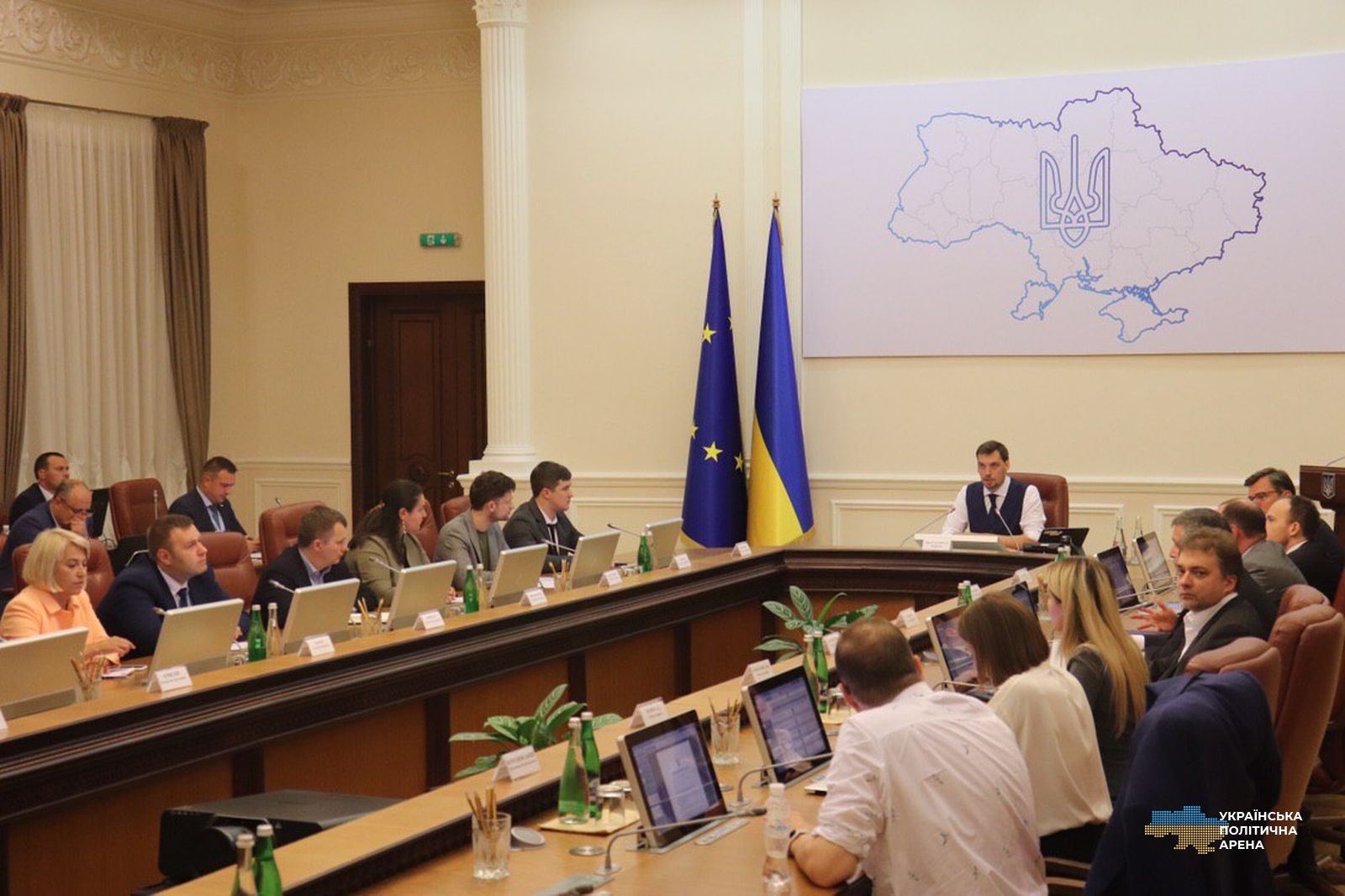And this fury was also directed against ministers and deputy ministers, who have just normal European salaries of around US$4000. Many people, nonetheless, supported governmental argumentation that high salaries of ministers will prevent corruption and motivate qualified people to work in government.
Although working at responsible posts should be properly rewarded, the opaque yet strange way to determine salaries in government leads to distrust in society. It makes Zelenskyy’s pre-election slogans such as “the end of the epoch of poverty” sound like a joke to Ukrainians.
Are salaries in Ukrainian government too high?
The scandal started just after the information about salaries in the Ukrainian government for December was published. It appeared that most salaries are two times higher than in the previous government. The champion was Iryna Podolia, deputy minister of culture, youth, and sport who earned in December UAH 394,710 (US$16,000). On the background of the average Ukrainian salary of UAH 11,000 (US$450), this sum was considered inappropriate by most Ukrainians. Other ministers and their deputies received in December between UAH 76,000 and UAH 366,000.
Commenting on this issue, Prime-Minister Oleksiy Honcharuk wrote on Facebook:
We have stopped the shameful practice of shadow schemes in the Government. Our Government is the first one whose ministers live the same way as government officials in any civilized country – for money from taxpayers…
We are currently observing a lot of manipulation with this data. Please do not speculate on the numbers. In some cases, ministers received a delayed salary for several months in December.
According to the official resolution of the Ukrainian government, salaries of all state employees, from the lowest ranks to the Prime-Minister, range from UAH 5,000 to UAH 38,000 (from US$200 to US$1500). However, few would work for such a salary on the position of a top-manager in government. Therefore, there is a system of additional bonuses defined by Prime-Minister each month. According to the words of Minister Borodianskyi, the real total monthly wages in the government reach UAH 100,000 (US$4000) but not more than that.
As compared to Europe’s and even to the Ukrainian private sector’s top wages, this is not a very high salary for a top manager. In Germany, ministers earn €15,140 a month, in France – €10,094. Ukrainian salary in government is close to the Polish – €3,505. However, in all European countries, there are specific laws that determine salaries in government and bound them to some indicators. For example, in Finland, the minister’s salary is equal to the salary received by the Deputy Speaker of Parliament, minus 5%. Salaries of Polish top officials depend directly on the minimum and average salaries in the country.
The absence of such direct indicators and the possibility to assign bonuses for ministers creates the feeling of injustice among average Ukrainians.
On the other hand, according to the research of the Analytical Center of the Ukrainian Catholic University, Ukrainians still share many soviet and post-Soviet economic myths, thinking that the government should directly regulate prices or raise salaries. Due to the emergence of oligarchs in the 1990s, the widespread perception is that those, who honestly work for the government can be only poor. If a top-official is rich than he or she had to steal something somewhere. This is the trauma Ukrainians have yet to overcome.
One more consequence of the post-Soviet trauma is that Ukrainians tend to underestimate their own income and status:

Ukrainian Post and Deutsche Ban are equally successful, but only according to salaries of their top-managers
Nonetheless, if the critique of normal salaries in the government emerges due to the post-Soviet mentality of some Ukrainians, the indignation by the income of top-managers of state companies is more than reasonable.
For example, the salary of Ihor Smilianskyi, the top-manager of a state company Ukrposhta (Ukrainian Post), according to the financial plan, is US$75,000 per month that is almost equal to the salary of the top-manager of Deutsche Ban — €75,000. That is one of the highest salaries among state-employed managers in the European Union. However, such a salary is absolutely inappropriate to Ukrainian Post — the company that was almost dead a few years ago and now renews and develops but slowly, far behind the leading in Ukraine private-owned Nova Poshta (New Post). Also for comparison, the total income of the US Postmaster Megan J. Brennan, together with pension and other benefits, was only US$55,000 per month.
Another critical example was the premium of US$45,6 million in total paid to the top management of Naftogaz — Ukraine’s state-owned gas and oil company. Of this money, around half was paid to the Naftogaz CEO Andriy Koboliev.

The bonus was bound to the positive decision of the Stockholm Arbitration against Russia on the total sum of US$4,5 billion. 1% of this sum was allocated as the premium for Naftogaz top-managers. One may say that this money was honestly earned by specific success.
However, on the other hand, the premium of US$45,6 million or UAH 700 million is 0,6% of the entire Ukrainian military budget. Such bonuses of some 150 managers could double the Ukrainian army. For the country at war, this issue is very sensitive.
Even though it is normal from the judicial point of view, not many Ukrainians can perceive as justified such a high income of one person hired by the state in the foreground of casualties in the front-line where soldiers still may have outdated equipment.
Read also:
- Ukraine’s economic losses due to Russian occupation of Donbas
- Germany strengthens Russia’s insolence with new economic agreement
- 84% of Ukrainians believe in populist economic fairy tales
- Inside Zelenskyy’s land sales bill and Ukraine’s land reform controversy
- Ukrainian airline industry booms as low-costers keep coming in
- Is freedom from the Russian gas needle possible for EU & Ukraine?








